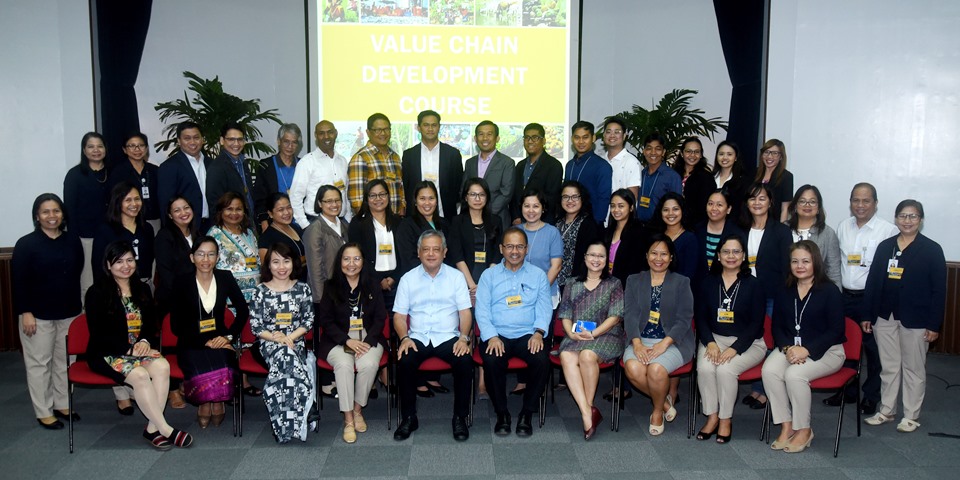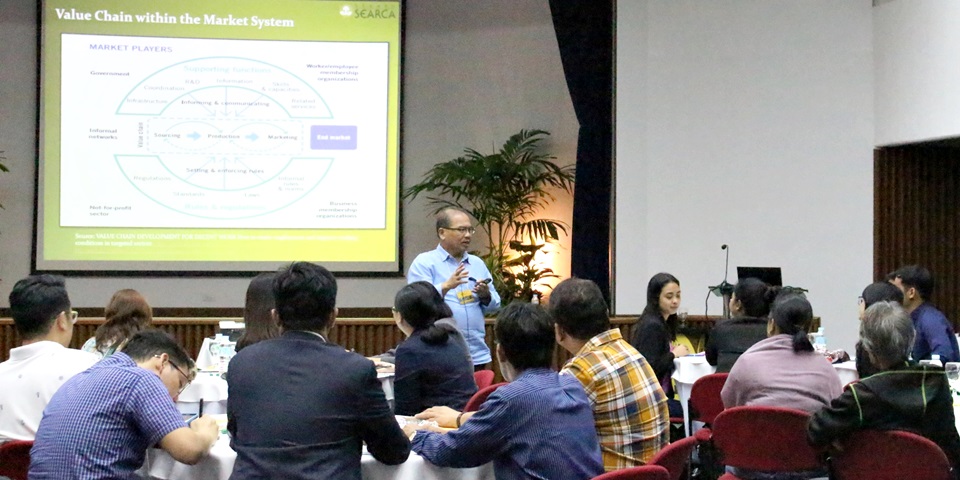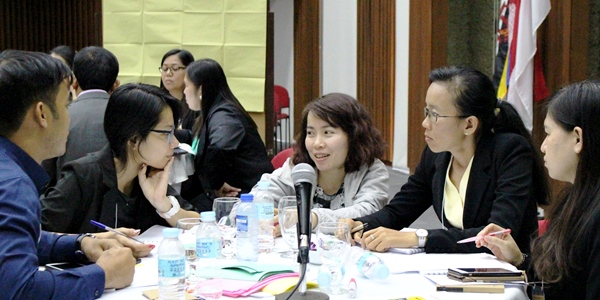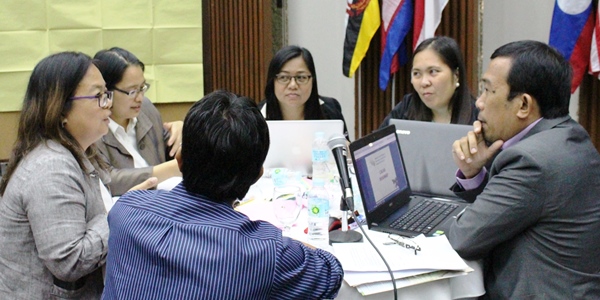This is the core of the "Value Chain Development (VCD) Course" on 12-16 March 2018 at the SEARCA Headquarters, Los Baños Laguna. A total of 28 research and development practitioners from the Philippines and neighboring countries, which include Cambodia, Lao PDR, Timor Leste, and Vietnam, participated in the five-day training-workshop. The course participants represented the academe, government institutions, non-government organizations, and local government units in their respective countries.
The SEARCA-pioneered value chain development course is attuned to its overarching theme Inclusive and Sustainable Agricultural and Rural Development (ISARD), which also corresponds to the United Nations' Sustainable Development Goal (SDG) No. 8, "Promoting inclusive and sustainable economic growth, employment and decent work for all." With social inclusion as one of ISARD's defining elements, the course content puts precedence to the marginalized actors in the process and how they can be economically and socially included and upgraded in agricultural value chain.
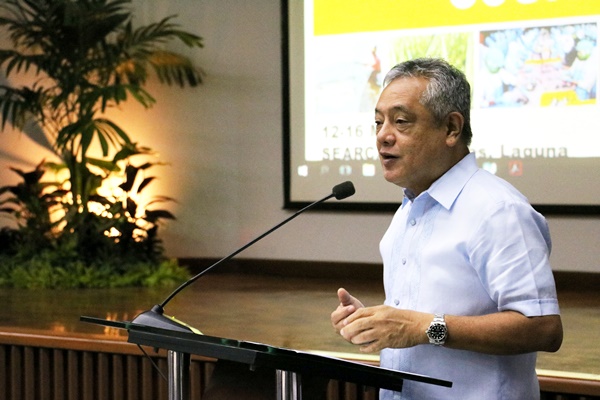
He further stressed that the training-workshop is a vital step towards developing a value chain framework that will facilitate the equitable integration of smallholder farmers and rural entrepreneurs in regionally integrated and borderless agribusiness markets.
"We believe that efforts to integrate small-scale farmers into commercial food systems is key to national and overall regional development especially in view of the ASEAN Economic Integration," Dr. Saguiguit said.
Likewise, Professor Wilfredo B. Carada of the University of the Philippines Los Baños College of Public Affairs and Development (UPLB CPAf) asserted how looking through a value chain lens defines inclusive and pro-poor development in its truest sense. He also enjoined the participants to go beyond understanding the value chain process, and more importantly, to instigate an inclusive VCD that brings positive and desirable changes, particularly to marginalized players at the lowest link of the chain. Professor Carada used the catchword "VCD4ISARD" as a call to action towards developing sound interventions for smallholders, small-scale businesses, landless laborers, and women, who participate in agricultural value chains as producers, traders, processors, laborers and retailers. He noted that the VCD4ISARD serves as an imperative tool to make these marginalized actors get a fair share in the value chain process.
"What we need to embrace is the inclusive definition of the value chain. This means we need to make the poor participate directly in economic activities, and make their participation translate into increased income and improved well-being. We must not merely rely on the "trickle down" process in aiming for sustainable development," Professor Carada explained.
Professor Carada, joined by Dr. Aileen V. Lapitan and Professor Rhea Ledesma-Gumasing of UPLB CPAf's Institute for Governance and Rural Development (IGRD), serve as resource persons and training facilitators.
The five-day course, composed of three interactive workshops and nine lecture-discussion sessions, combine the fundamental frameworks, principles, components and processes of the value chain system and their practical skills and application in: 1) VCD in the context of ISARD; 2) sector and value chain selection; 3) value chain analytics and mapping; 4) VCD and intervention design thinking; and 5) value chain system implementation, monitoring and evaluation, and sustainability.
In the workshop, participants have been divided into six groups, each assigned with an agricultural sub-sector characterized to have the greatest potential and relevance to the ISARD. Identified sub-sectors were cocoa, rice, abaca, sugar, coconut, and swine. Each group is developing and presenting a value chain development plan for their respective sub-sector. Each plan includes a sector situationer, value chain analysis and mapping; value chain development strategy; organizational/institutional arrangements for VCD; and monitoring and evaluation plan.
Individually, participants are also tasked to present and submit a re-entry action plan (REAP) of their chosen commodity, which will serve as a groundwork on how they will apply the learning gains and takeaways from the VCD course in their own workplaces, academic institutions, and localities. (Ma. Karen R. Serrano)
